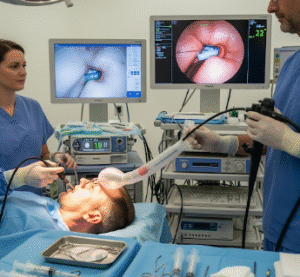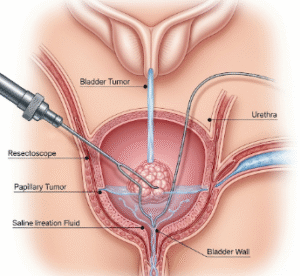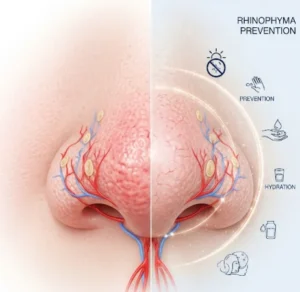Overview
Retinopathy of Prematurity (ROP) is a potentially blinding eye disorder that affects premature infants, especially those born before 31 weeks of gestation or with very low birth weight. It results from abnormal blood vessel development in the retina, which can cause retinal scarring and detachment. Korea offers specialized neonatal care and advanced ophthalmic treatments to diagnose, monitor, and manage ROP effectively, improving outcomes for premature babies.
What is Retinopathy of Prematurity?
ROP is a disease of the developing retina in premature infants where the normal growth of retinal blood vessels is disrupted. This leads to abnormal vessel proliferation, which can cause bleeding, scarring, and in severe cases, retinal detachment and vision loss. Early detection and timely treatment are critical to prevent blindness.
Symptoms
- Often no obvious symptoms initially in infants
- In severe cases, signs may include abnormal eye movements or a white pupil reflex (leukocoria)
- Diagnosed through eye examinations by specialists
Causes
- Premature birth leading to incomplete retinal vascular development
- Oxygen therapy (especially high concentrations) administered in neonatal intensive care
- Fluctuations in blood oxygen levels after birth
Risk Factors
- Prematurity (born before 31 weeks)
- Low birth weight (less than 1500 grams)
- Prolonged oxygen therapy or high oxygen levels
- Respiratory distress syndrome or other neonatal complications
- Multiple births (twins, triplets, etc.)
Complications
- Retinal detachment causing permanent vision loss or blindness
- Formation of scar tissue on the retina
- Refractive errors such as myopia (nearsightedness) later in life
- Strabismus (misalignment of the eyes) and other vision problems
Prevention
- Careful monitoring and regulation of oxygen therapy in neonatal intensive care units
- Regular retinal screenings for at-risk premature infants
- Early intervention to manage abnormal blood vessel growth
Treatment Options in Korea
Korean neonatal and ophthalmology centers provide advanced care for ROP, including:
- Screening: Systematic retinal examinations for premature infants using indirect ophthalmoscopy or digital retinal imaging.
- Laser Photocoagulation: The standard treatment to ablate abnormal retinal areas and prevent progression of ROP.
- Anti-VEGF Therapy: Intravitreal injections to inhibit abnormal blood vessel growth in selected cases.
- Surgical Treatments: For advanced cases, vitrectomy or scleral buckling to repair retinal detachment.
- Multidisciplinary Care: Collaboration between neonatologists, ophthalmologists, and pediatric specialists to optimize infant health and vision outcomes.
- Long-Term Follow-Up: Monitoring for vision development and related complications as the child grows.
Korea’s comprehensive approach and cutting-edge technology make it a leading center for ROP care, providing hope and improved quality of life for premature infants and their families.













